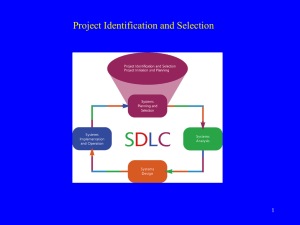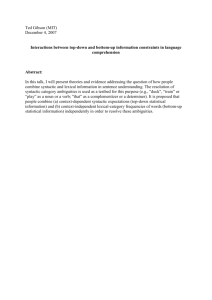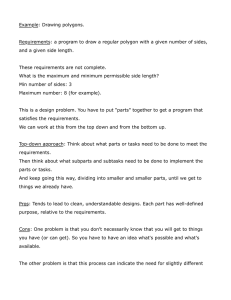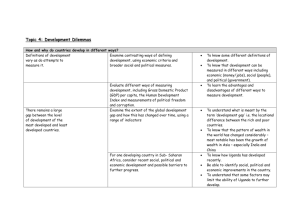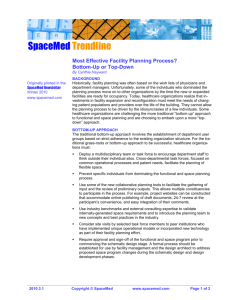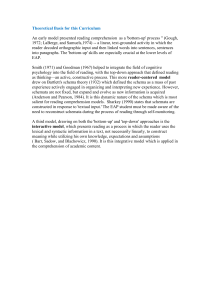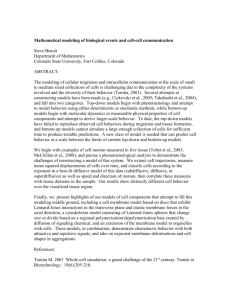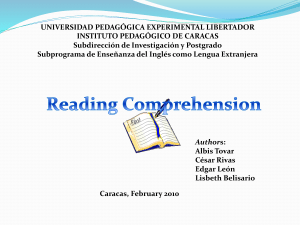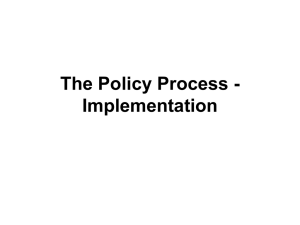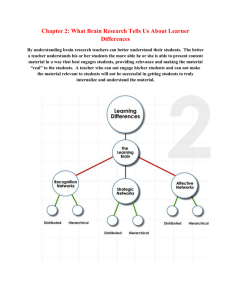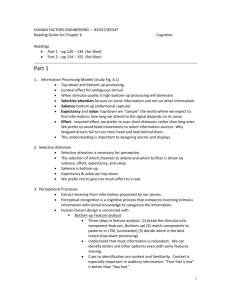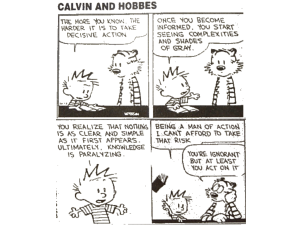How To Think About Learning On The Internet
advertisement
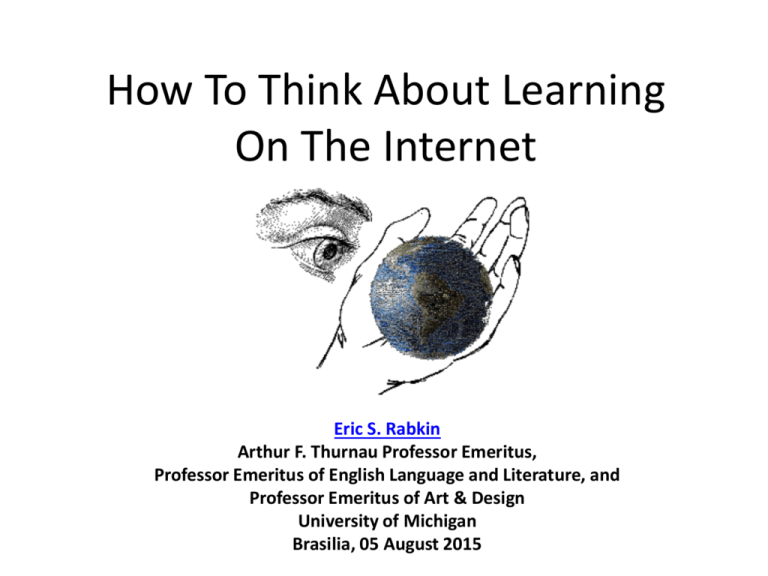
How To Think About Learning On The Internet Eric S. Rabkin Arthur F. Thurnau Professor Emeritus, Professor Emeritus of English Language and Literature, and Professor Emeritus of Art & Design University of Michigan Brasilia, 05 August 2015 How To Think About Learning On The Internet - Overview A MOSAIC Context Motives Resources TWELVE TILES • Why Learn? Fun and Profit • Real Work Is Better Than Homework • The Learning Environment • From Foraging to Collaboration • See One, Do One, Teach One • Top-Down and Bottom-Up and Something-In-Between • • • • • • Questions of Scale Questions of Community Authentication Authorization Ownership Access How To Think About Learning On The Internet Context Personal “They have mouths, but they speak not; eyes have they, but they see not.” Lev Vygotsky’s Zone of Proximal Development Social Actual past: Geni present: Department of English future: Cornell New Student Reading Project Virtual: Goodreads Physical Accessiliblity: WAVE Mobility: Biology field work apps Temporal Just in Time: Weather Underground (with historical data) Just in Case: Portuguese conjugation tables (v. translate.google.com) Recency: Arithmetic game Frequency: A Word A Day Persistence: Animal Diversity Web How To Think About Learning On The Internet Motives Pleasure: Internet Movie Database Profit: Symptom Checker Intrinsic Drives: TED talks Extrinsic Drives: Continuing Medical Education How are MOOCs used? How To Think About Learning On The Internet Resources One-way: Merriam Webster Dictionary Two-way: Machine-driven: University of Michigan Library Intrinsic Drives: Amazon reviews All-way: Machine-driven: Google Books Ngram Viewer (Frankenstein, Sherlock Holmes, Albert Einstein: 1800-2000; English) Human-driven: Wikipedia How To Think About Learning On The Internet Why Learn? Fun and Profit (Dulce et utile) Who can blend usefulness and sweetness wins every Vote, at once delighting and teaching the reader. –Horace (c. 19 BCE), Ars Poetica (The Art of Poetry) Sweet (repair, maintain, grow): Online Etymology Dictionary Sweet & Useful (repair, maintain, grow) New York Times (including archive) Useful (repair, maintain, grow): Khan Academy How To Think About Learning On The Internet Real Work Is Better Than Homework How To Think About Learning On The Internet The Learning Environment World: Wall Street Journal and El Pais Wer Ald: etymology Genre: What is a grade?; “The Shortest Way with the Dissenters” Culture: “Muslims in Moscow Work to Break Stereotype”; censorship; Facebook How To Think About Learning On The Internet From Foraging to Collaboration Collecting information: U. S. Census; WolframAlpha Evaluating information: Snopes.com; Harvard Guide to Using Sources Manipulating information: WordItOut; Science Fiction titles Sharing information: SETI@home; The Genre Evolution Project Fostering collaboration: Meetup; WordPress; Google apps; Personify How To Think About Learning On The Internet See One, Do One, Teach One Experiential Education: Worth1000 Guided Practice: Apprennet Structured: Eighteenth Century England Ad hoc: Professor Rabkin’s Closet How To Think About Learning On The Internet Top-Down and Bottom-Up and Something-in-Between Top-down: Arizona State University Online; edX Bottom-up: w3schools.com; Citizen Journalism Something-in-Between: Allrecipes.com; Huffington Post How To Think About Learning On The Internet Questions of Scale Independent study: duolingo Work group: Prism MOOC: 22 minutes to an answer How To Think About Learning On The Internet Questions of Community Anonymity: pros and cons Pre-exisiting or self-organizing: Technology and the Humanities Voluntary or mandatory: RoadScholar Inclusive or exclusive: Humanist Discussion Group Posting for fun and profit: SFFaudio How To Think About Learning On The Internet Authentication Identity: We Take Your Class Who cares? Fox News U.S. Republican debate (6 Aug 2015) How To Think About Learning On The Internet Authorization Group membership: Secure Materials server Expertise: PMC (Post Modern Culture) Experience points: Quora Thumbs up or down: Reddit Moderators and Trolls: Conflict at Reddit Leonard Nimoy, vegetarian How To Think About Learning On The Internet Ownership Copyright: Stanford Copyright and Fair Use Center Creative Commons: re-use and attribution licenses Coercion: turnitin (plagiarism checker) Public Domain: definition How To Think About Learning On The Internet Access Physical: Adaptive Technology Educational: Me desculpe, mas eu não falo Português Financial: Georgia Tech Online M.S. in Computer Science Social: Internet filters at Home and at the Public Library Legal: A Prisoner’s Dilemma
